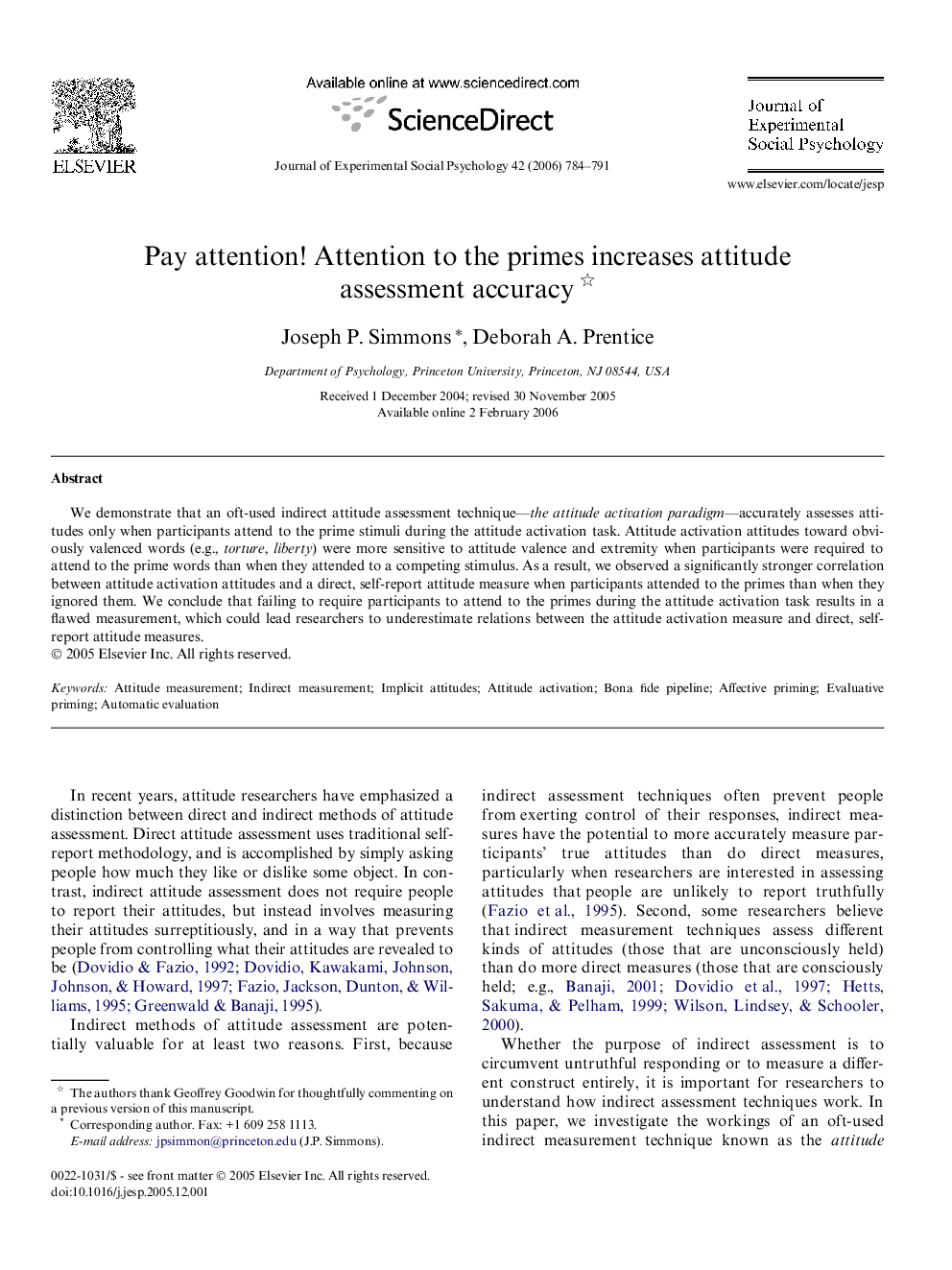| Article ID | Journal | Published Year | Pages | File Type |
|---|---|---|---|---|
| 948568 | Journal of Experimental Social Psychology | 2006 | 8 Pages |
We demonstrate that an oft-used indirect attitude assessment technique—the attitude activation paradigm—accurately assesses attitudes only when participants attend to the prime stimuli during the attitude activation task. Attitude activation attitudes toward obviously valenced words (e.g., torture, liberty) were more sensitive to attitude valence and extremity when participants were required to attend to the prime words than when they attended to a competing stimulus. As a result, we observed a significantly stronger correlation between attitude activation attitudes and a direct, self-report attitude measure when participants attended to the primes than when they ignored them. We conclude that failing to require participants to attend to the primes during the attitude activation task results in a flawed measurement, which could lead researchers to underestimate relations between the attitude activation measure and direct, self-report attitude measures.
